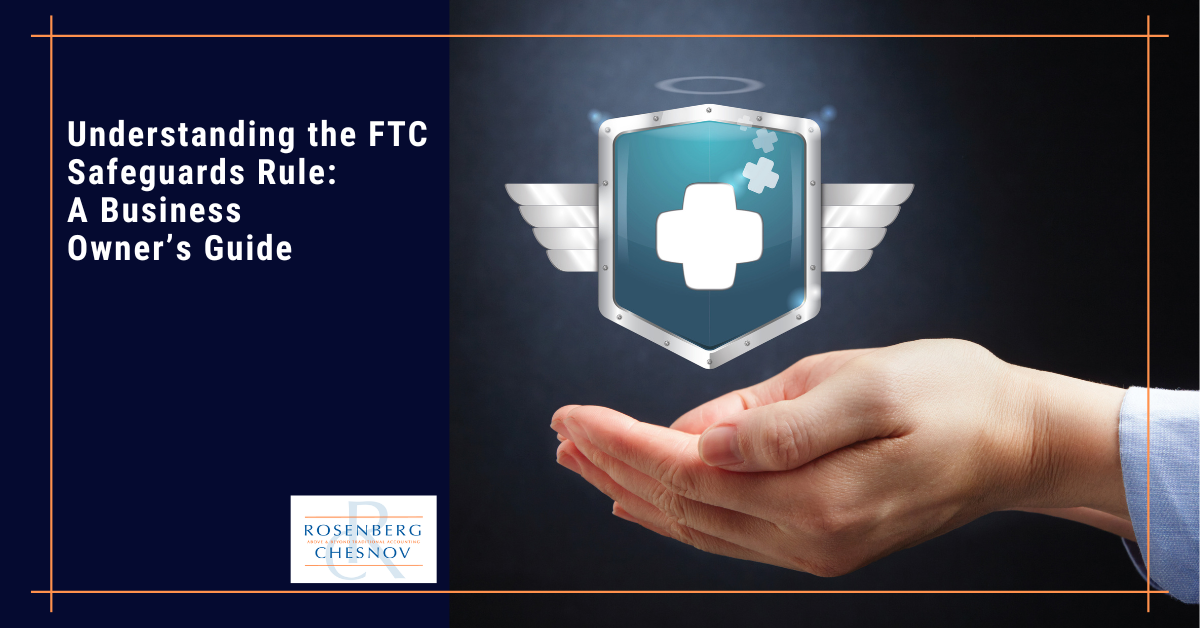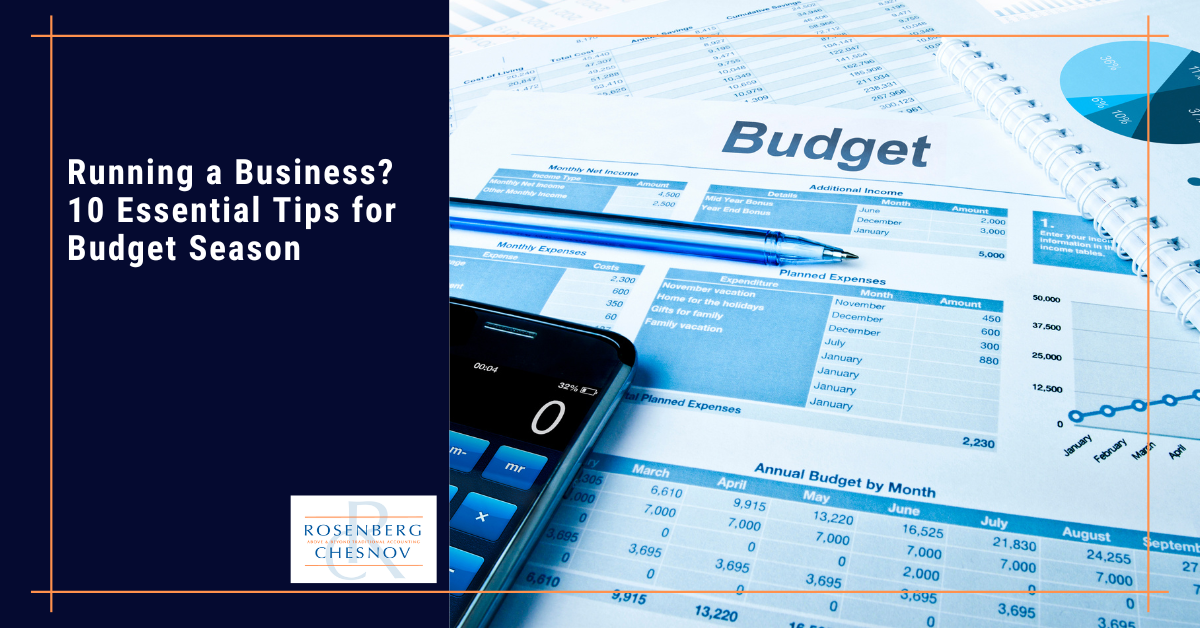

Understanding the FTC Safeguards Rule: A Business Owner’s Guide
Category: Accounting
You’re making some income selling your handmade jewelry…
Your cover band keeps booking paid gigs…
People are hiring you to photograph weddings or refinish antique furniture…
Are your business activities a hobby or a business? There is a difference at tax time, and you want to ensure you present your activities the right way.
The IRS defines a hobby as something you engage in “for sport or recreation, not to make a profit.” But making a profit alone does not make your hobby a business. Likewise, failing to generate income does not make your business a hobby.
Your intent is a deciding factor.
Hobby versus business matters because classifying your activity as a business ensures that you can write off certain expenses and decrease your tax burden.
On the flip side, if your business is a hobby, you can’t deduct your expenses, but you also do not have to pay self-employment tax.
So make sure you know how the IRS will interpret your business activities.
In this post, I discuss:


In determining whether your activity is a hobby or a business, the IRS will focus on intent rather than size or amount of business.
For example, one artist may sell one painting a year and qualify as a business. Meanwhile, another artist may sell eight paintings a year but remain a hobbyist in the IRS’s eyes.
Why?
Because the first artist has chosen to go into business with the intent of making a profit. As long as the second artist is painting for pleasure, without intending to generate income, they do not have a business.
Suppose an individual, partnership, estate, trust, or an S corporation engages in an activity not considered a for-profit business – instead it is a hobby.
In this case, that entity can not deduct any expense other than the cost of goods sold. So there may be sales, marketing, and management expenses that the entity could not deduct.
However, individuals who work for themselves as businesses are subject to self-employment tax, which you do not have to pay if your activity is a hobby.
Note that the IRS assumes you intend to run a for-profit business if you form any corporation other than an S-Corp.
If you own a corporation or conduct your business in a way that the IRS considers “for-profit,” you get the benefit of deducting overhead costs and expenses related to running the business.
However, you may have to pay self-employment taxes.
These 9 questions will help you determine the answer.
These questions cover the factors that the IRS recommends that you consider when classifying your activity. Try to look at what you do objectively and answer each question with honesty.
Answering “yes” most of these questions will indicate that you likely have a business. Answering “no” suggests that you are a hobbyist.
Now the caveat: the IRS will take all facts and circumstances into account. No single aspect can make the determination, and this list is not all-inclusive. Your answers are indicative, but the IRS will make the final decision.
On to the questions…
1. Do you carry on the activity in a business-like manner?
Some sub-questions to help you define this are:
2. Are you or your advisors experts in the field?
Having and using expertise suggests a level of knowledge that implies that you are running a business. So the key questions are:
3. Do you expend a lot of time and effort?
The more effort you invest, the more your activity looks like a business.
4. Do you expect that assets used in the activity may appreciate?
Even if you make no profit from operations, investing in land or other assets that appreciate and generate income implies running a business.
5. Have you been successful in carrying on other similar or dissimilar activities?
This, again, goes to establishing your expertise as a business owner.
6. Do you have a history of income or losses with respect to the activity?
Both startups and hobbies tend to lose money at some point in their evolution. So the IRS will look toward your history in dealing with these losses. If you have a history of making gains or turning losses into gains, this will support the idea that you are running a business.
Note that early losses during start-up or due to unforeseen circumstances beyond your control (such as disasters or theft) do not suggest that you are engaging in a hobby. Remember that the determination comes back to intent.
7. Did the activity make a profit, even a small one, in three of the last five years?
Occasional large profits mixed with frequent small losses or investing in future profits indicate a business motive.
8. Do you have no substantial income or capital from other sources?
If you have significant income from other sources, this supports the idea of you engaging in a hobby. If you rely on this activity for income, then it is much more likely a business.
9. Does the activity lack personal pleasure or recreational elements?
If the activity does not involve personal or recreational appeal, this could indicate a profit motive. In contrast, something you do for fun suggests more of a hobby.
If you found yourself answering “yes” to most of the above questions, your activity likely constitutes a business.
On the other hand, if you answered “no” to most of the questions, you probably operate as a hobby.
But also remember that this is not a black and white situation; the real question is your intent. No one “yes” makes you a business instead of a hobby; it is the entire package together that will support your claim one way or the other.
Most of our clients are more concerned about ensuring that their business is NOT considered a hobby. The value of the deductions generally exceeds the expense of self-employment taxes.
So how do you show that you are operating a business?
The first step in demonstrating that you are a legitimate business is to be one and work as one.
Establish your business structure and act like a business.
Beyond this, the IRS will look for evidence that you are actively trying to make money. You can demonstrate your professional approach in the following ways:
Doing these things will show the IRS that you are serious about turning a profit and that they should classify your activity as a business, not a hobby.
As an added benefit, these also happen to be good business practices.
The advantage of a hobby is that you don’t need to pay self-employment tax. So if what you do is genuinely a hobby, this classification will help you. You just report your hobby income as “other income” on your 1040 form.
Gross hobby income equals gross receipts minus the cost of goods sold.
In the past, taxpayers could deduct certain allowable “ordinary and necessary” hobby-related expenses. This itemized deduction applied up to the amount of earned income.
However, the Tax Cuts and Jobs Act eliminated all miscellaneous itemized deductions. That means that hobbyists now cannot deduct any expenses but still need to report and pay taxes on hobby-related income.
Operating as a business allows you to deduct expenses and losses that you cannot as a hobbyist. Operating as a hobby limits your deductions but does allow you to avoid paying self-employment tax.
Getting this wrong can have serious implications, and whether you operate a business or a hobby is more complicated than whether or not you make a profit. It is about intent, which depends on interpretation.
Understanding how the IRS determines these classifications can save you from heavy penalties or even an audit… not to mention making your activity more successful and rewarding, whether it’s for business or pleasure.
If you are a client and would like to book a consultation, call us at +1 (212) 382-3939 or contact us here to set up a time.
If you aren’t a client, why not? We can take care of your accounting, bookkeeping, tax, and CFO needs so that you don’t have to worry about any of them. Interested? Contact us here to set up a no-obligation consultation.


Category: Accounting


Category: Management


Category: Management
Send us a message and we will contact you as soon as possible.
Jeff Coyle, CPA, Partner of Rosenberg Chesnov, has been with the firm since 2015. He joined the firm after 20 years of business and accounting experience where he learned the value of accurate reporting, using financial information as a basis for good business decisions and the importance of accounting for management.
He is a diligent financial professional, able to manage the details and turn them into relevant business leading information. He has a strong financial background in construction, technology, consulting services and risk management. He also knows what it takes to create organizations having built teams, grown companies and designed processes for financial analysis and reporting.
His business experience includes:
Creating and preparing financial reporting, budgeting and forecasting.
Planning and preparation of GAAP and other basis financial statements.
Providing insight on financial results and providing advice based on those results.
Jeff also has a long history of helping individuals manage their taxes and plan their finances including:
Income tax planning and strategy.
Filing quarterly and annual taxes.
Audit support.
General financial and planning advice.
Prior to joining the firm in 2015, Jeff was in the private sector where he held senior financial and management positions including Controller and Chief Financial Officer. He has experience across industries, including construction, technology and professional services which gives him a deep understanding of business.
Jeff graduated from Montclair State University, he is a CPA and member of the American Institute of Certified Public Accountants, New York State Society of Certified Public Accountants and New Jersey State Society of Public Accountants.
Jody H. Chesnov, CPA, Managing Partner of Rosenberg Chesnov, has been with the firm since 2004. After a career of public accounting and general management, Jody knows the value of good financials. Clarity, decision making, and strategy all start with the facts – Jody has been revealing the facts and turning them into good business results for more than three decades.
He takes a pragmatic approach to accounting, finance and business. His work has supported many companies on their path to growth, including helping them find investors, manage scaling and overcome hurdles. His experience and passion for business reach beyond accounting and he helps businesses focus on what the numbers mean organizationally, operationally and financially.
He has a particular expertise in early-stage growth companies. His strengths lie in cutting through the noise to come up with useful, out of the box, solutions that support clients in building their businesses and realizing their larger visions.
Prior to joining the firm in 2004, Jody was in the private sector where he held senior financial and management positions including General Manager, Chief Financial Officer and Controller. He has experience across industries, which gives him a deep understanding of business.
Jody graduated with a BBA in Accounting from Baruch College, he is a CPA and member of the American Institute of Certified Public Accountants and New York State Society of Certified Public Accountants.
In addition to delivering above and beyond accounting results, Jody is a member of the NYSCPA’s Emerging Tech Entrepreneurial Committee (ETEC), Private Equity and Venture Capital Committee and Family Office Committee.
He is an angel investor through the Westchester Angels, and has served as an advisor for many startup companies and as a mentor through the Founders Institute.